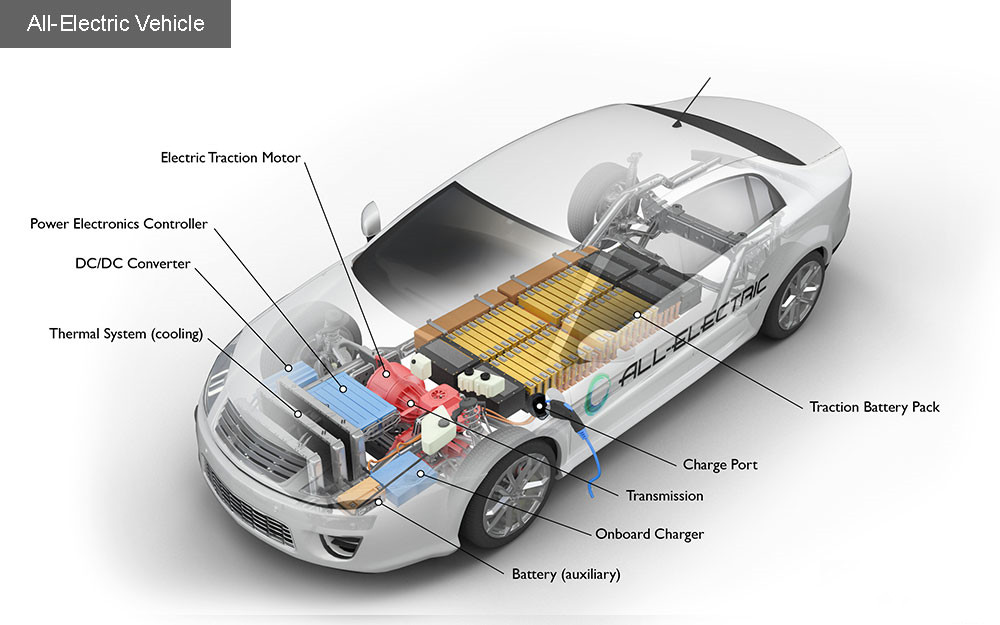Are electric cars cheaper in the long run? | iFlowPower
Electric vehicles have become the talk of the town in recent times, and for good reason. As the world battles the effects of climate change, electric cars represent a significant solution. With the advent of electric cars, one question that has been on everyone’s mind is whether it’s cheaper to run an electric car compared to conventional gas-powered vehicles.
Before we dive into the economics of owning an electric vehicle, let’s first understand how electric cars work. An electric car is powered by an electric motor that is fueled by a battery pack that is recharged by plugging it into an electric power source. In contrast, traditional gas-powered cars have an internal combustion engine fueled by gasoline.

Lower Maintenance Costs
Electric cars generally cost a few thousand dollars more than their gas-powered equivalents. According to a cost comparison study by Car and Driver, the 2020 Mini Cooper Hardtop has a base price of $24,250, compared to $30,750 for the Mini Electric. Similarly, the 2020 Hyundai Kona has a base price of $21,440, while the Hyundai Kona Electric is priced at $38,330. Due to the higher purchase prices of electric vehicles, sales taxes will also be higher, further adding to the upfront cost.
But Gasoline is expensive, and it’s a finite resource that’s diminishing in availability. On the other hand, electric cars consume electricity, which is renewable and cheaper.The average cost per mile of charging an electric vehicle is around 10 cents compared to 15 cents for gas-powered vehicles.It’s also worth noting that electric chargers are cheaper to install compared to gas stations.Since electric cars do not require gas or oil changes, their maintenance costs are lower compared to gas-powered vehicles. In the long term, electric cars can potentially save you a lot of money in fuel and maintenance costs.
Tax Rebates and Grants for Electric Cars
If you buy an electric car, you might be able to reduce the amount you pay in taxes. In some areas, EV drivers can receive a tax deduction of up to $7,500. In addition, some cities offer EV owners a break on the cost of parking and road tolls. Before purchasing a new car, make sure you check with your local government to find out if you qualify for any tax breaks.
Fewer Moving Parts and Last Longer
Drivers of electric vehicles also enjoy lower maintenance costs because of the lower number of moving parts in an EV. A gas-powered car has about 200 moving parts and an average life expectancy of about 200,000 miles, while an EV has around 50 moving parts and a life expectancy of 300,000 miles. Additionally, EVs are designed to be much more reliable than traditional cars, so they are less likely to break down. This means that you will have to spend less money on maintenance and repairs over time.
Technological innovation
Another reason electric cars cost less in the long run is that they are a testing ground for new technologies. While it is possible to build fully self-driving gasoline-powered cars, the cost is prohibitively high. Since electric cars are cheaper to produce, they provide an ideal platform for the development of self-driving technology. Electric vehicles are also ideal for testing innovations such as car-sharing networks, ride-hailing services and subscription-based transportation services. Such networks are expected to become increasingly popular in the coming years, making electric vehicles more cost-effective.
Environmental Benefits of Owning Electric Cars
One of the most significant benefits of owning an electric car is its positive effects on the environment. For one, EVs produce no greenhouse gases and emit no pollutants into the air, improving air quality.
Furthermore, EVs use energy from renewable resources, like wind or solar, reducing the carbon footprint significantly. By driving an electric car, you are directly contributing to a greener future.













































































































